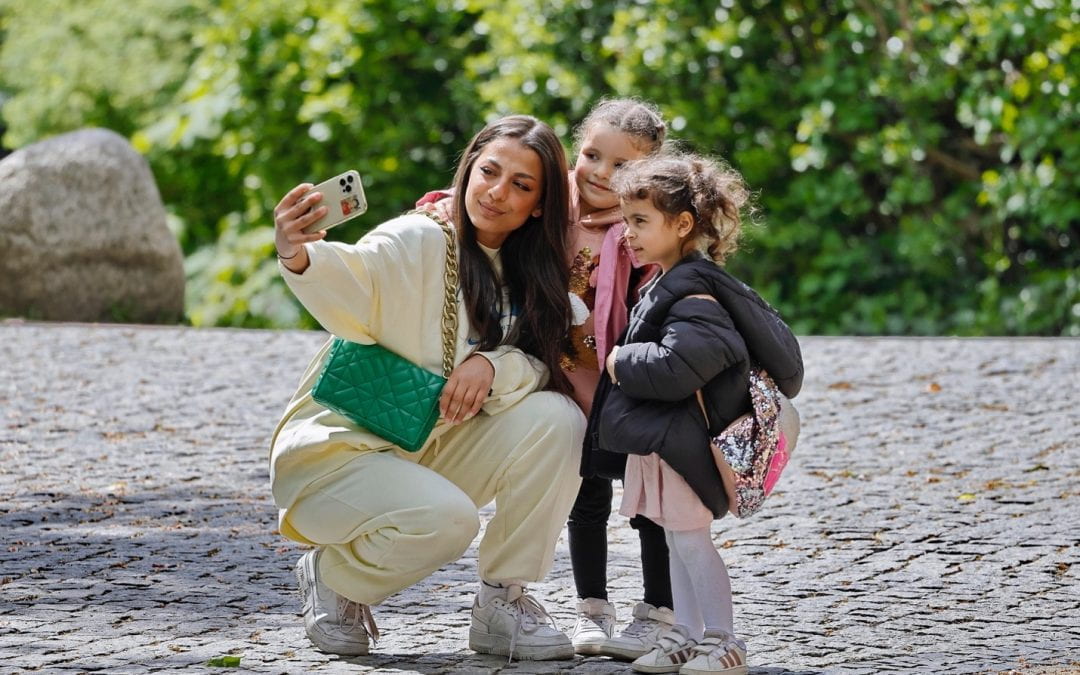The impact and accessibility of technology has induced a shift in entertainment away from movie theaters, cable, and streaming platforms towards social media platforms like Instagram and TikTok. As of November 2022, TikTok had even surpassed Netflix as the second-most popular app for those under 35.[1] TikTok’s rise has contributed to the growing popularity of influencers and a shift in influencers’ ages, with some children having social media accounts before they are born.[2] This group has acquired its own name: Kidfluencers, “children whose social media presence has garnered enough attention that they attract advertisers and sponsors.”[3] In some cases, a child’s social media account may “pay[] so much money, [the parents] don’t even know how [they] got to do it.”[4]
The rise of child influencers begs the question: How can the law protect these children from financial harm? Currently, there is no law to protect kid influencers.[5] Child influencers are often filmed by their parents, turning them into potential sources of fame and income through sponsorships and advertisements on social media accounts.[6] Considering the similarities between child influencers and child actors, however, there is already legislation that can serve as a useful foundation for establishing more tailored protections for these children in the digital era.
Child labor is primarily regulated at the state level, and one example in the “traditional” entertainment industry is the Coogan Law, originally enacted in California after child-star Jackie Coogan sued his mother upon discovering as an adult that his parents had spent the majority of his earnings.[7] The biggest impact of the Coogan Law is that it requires Coogan Accounts, which hold “15 percent of the minor’s gross earnings . . . in a trust.”[8] This trust does not allow any withdrawals “by the beneficiary or any other individual” until the beneficiary reaches 18 years of age.[9] In states other than California, these accounts go by different names and vary in levels of restrictiveness.[10] Like the child actors protected by these laws, child influencers are also at risk of exploitation by their parents and by the companies that sponsor them,[11] thereby necessitating an explicit expansion in laws like the Coogan Law to include minors who earn income through social media.
Looking to California’s Coogan laws is a good starting point, as its history provides a basis for other state laws,[12] and it may continue to do so in the future. The current language of the Coogan Law only requires the creation of Coogan Accounts for contracts “between an unemancipated minor and a third party . . . pursuant to which a minor is employed,”[13] including contracts in which a minor agrees to sell their “likeness, voice recording, performance, or story.”[14] The role of child influencers falls within this context because parents are using their children’s likenesses, performances, and stories on social media accounts to benefit various brands.[15]
Society, however, often views the parent-child relationship as “sacred,” and this is reflected in laws like the Fair Labor Standards Act which excludes children employed by parents,[16] and state child labor laws have similar exemptions.[17] Consequently, although the Coogan Law already includes the functional role of kid influencers, it does not extend to children who are employed by their parents, which presents a major obstacle for child influencers featured on accounts ultimately managed by their parents.
One way to get around this obstacle is by reforming existing legislation to include kid influencers who are effectively employed by their parents. This would be consistent with the Supreme Court’s ruling that a state may “[a]ct[] to guard the general interest in youth’s well-being” and “restrict [] parent’s control by . . . regulating or prohibiting the child’s labor.”[18] Given this, states should extend child labor laws, like the Coogan Law, to cover child influencers because of the privacy risks that come with exposing children’s personal information online.[19] By expanding legislation to include this special relationship between kid influencers and their parents, child influencers can then receive fuller financial protections like Coogan Accounts.
As a leader in the entertainment industry, the United States needs to adapt to the digital age. France has already enacted legislation, effective April 2021, by which child influencers will be protected by the French Labor Code.[20] With the growing number of child influencers, there is an urgent need for legislation to catch up to the digital age.
[1] Aaron Baar, Social Media Is Becoming Less ‘Social” and More ‘Media,’ Social Media Today (Nov. 23, 2022), https://www.socialmediatoday.com/news/social-media-tiktok-is-entertainment/637087/.
[2] The Rise of the “Kid Influencers”: Meet the New Generation of Influencers, Medium (Oct. 30, 2019), https://keepface-com.medium.com/the-rise-of-the-kid-influencers-meet-the-new-generation-of-influencers-752f223b9cfb.
[3] Id.
[4] CBS News, Kid Influencers: Few Rules, Big Money, YouTube (Aug. 23, 2019), https://www.youtube.com/watch?v=8XkaSouYTbg.
[5] See Marina A. Masterson, When Play Becomes Work: Child Labor Laws in the Era of ‘Kidfluencers,’ 169 U. Pa. L. Rev. 577, 579 (2020).
[6] Id.
[7] Erin E. O’Neill, Influencing the Future: Compensating Children in the Age of Social-Media Influencer Marketing, 72 Stan. L. Rev. Online 42, 47 & n.40 (2019).
[8] Cal. Fam. Code § 6752 (b)(1) (2019).
[9] Id. at § 6753 (b).
[10] Denise Simon, Work Permits and Coogan Accounts: What You Need to Know for Child Actors, Backstage (Mar. 9, 2023), https://www.backstage.com/magazine/article/coogan-law-explained-child-actors-3978/#:~:text=In%20states%20other%20than%20California,%2C%20Tennessee%2C%20and%20New%20Mexico.
[11] Masterson, supra note 6, at 593.
[12] Trust Accounts, BizParentz Foundation, https://www.bizparentz.org/trust-accounts/ (last visited Mar. 26, 2023).
[13] Cal. Fam. Code § 6750 (a)(1) (2019).
[14] Id. at § 6750 (a)(2).
[15] O’Neill, supra note 8, at 43.
[16] O’Neill, supra note 8, at 45–46.
[17] Id. at 46.
[18] Prince v. Massachusetts, 321 U.S. 158, 166 (1944).
[19] O’Neill, supra note 8, at 48.
[20] France: Parliament Adopts Law to Protect Child “Influencers” on Social Media, Libr. Cong. (Oct. 30, 2020), https://www.loc.gov/item/global-legal-monitor/2020-10-30/france-parliament-adopts-law-to-protect-child-influencers-on-social-media/.

